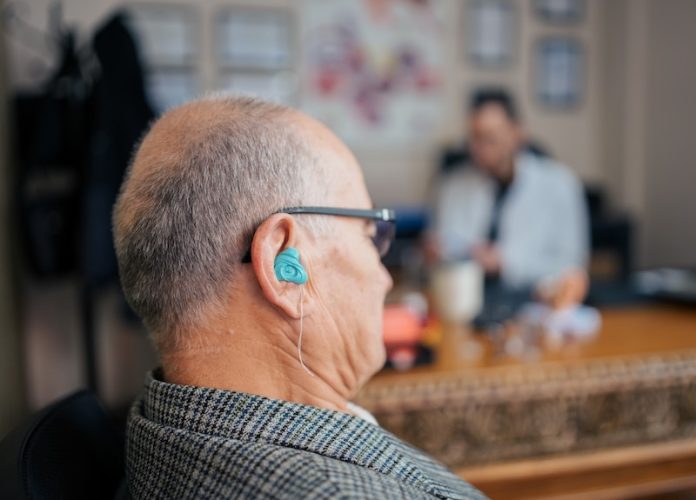
Dementia is a condition that makes it hard for people to remember things, think clearly, or take care of themselves. This issue is especially common among older adults, and there isn’t a cure for it yet.
However, a recent study shows that something as simple as a hearing aid could help protect against dementia, particularly for those who are already at risk.
What’s the Connection Between Hearing and Memory?
Age-related hearing loss is common. About two out of every three people over 60 experience it.
But despite this, only a few people actually use hearing aids, either because they can’t afford them or feel embarrassed to wear them.
But what if treating hearing loss could also help save your memory and thinking skills? That’s what a recent study led by Professor Frank Lin at Johns Hopkins University set out to investigate.
This study is the first of its kind and involved nearly 1,000 older adults from various locations across the United States.
After tracking them for three years, researchers found that treating hearing loss could actually slow down mental decline, but mainly for people already at higher risk of dementia.
The Study and Its Findings
In the study, participants were divided into two groups. One group came from another long-term health study, and they were generally less healthy and at higher risk for cognitive decline.
The second group volunteered for this study and were generally healthier. Some people from both groups were given hearing aids and advice on managing hearing issues, while others received only general advice on healthy aging.
The result? For the group at higher risk of dementia, using hearing aids actually slowed down their cognitive decline, making their brains “age” more slowly compared to those who didn’t use hearing aids.
Why This Matters for Future Research
This study is big news! It means that treating hearing loss could be a straightforward way to help guard against dementia.
Professor Lin and his team are excited but cautious; more research needs to be done to fully understand this connection.
Still, these findings are in line with previous reports that have suggested treating hearing loss as a strategy to reduce dementia risk.
A few theories try to explain why hearing loss could lead to dementia. One idea is that straining to hear can tire out the brain. Another thought is that hearing loss might speed up brain shrinking.
Or it could be that hearing loss makes people less social, depriving the brain of the mental workout it needs to stay sharp.
Even though the study isn’t perfect, it does offer hope for a simpler solution to a complicated problem.
If these findings hold true in future research, hearing aids could play an important role in keeping our brains healthy as we age.
If you’re interested in keeping your brain healthy, don’t ignore studies that talk about the benefits of walking or the role of high blood pressure medication in reducing dementia risk.
Every little bit of knowledge helps us get closer to understanding and possibly preventing this challenging condition.
This study was published in the reputable scientific journal, The Lancet, making it a significant contribution to our understanding of dementia and cognitive health.
If you care about hearing loss, please read studies about antibiotic drug that can lead to hearing loss, and whether you should get an hearing aid or see a specialist.
If you care about dementia, please read studies about how the Mediterranean diet could protect your brain health, and these antioxidants could help reduce dementia risk.
Follow us on Twitter for more articles about this topic.
Copyright © 2023 Knowridge Science Report. All rights reserved.



